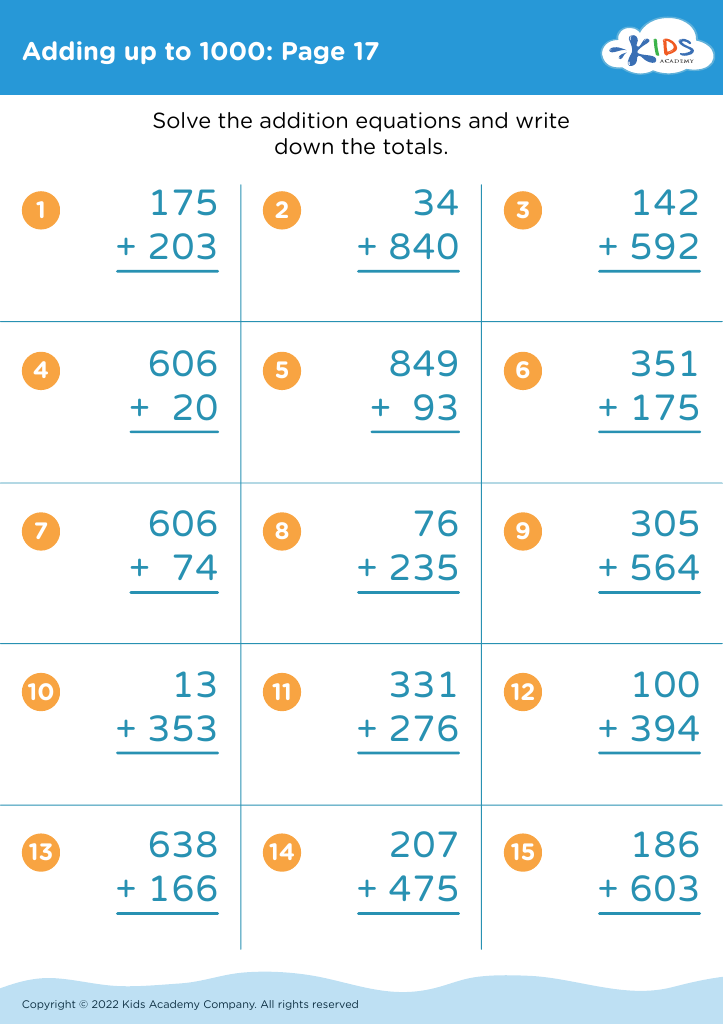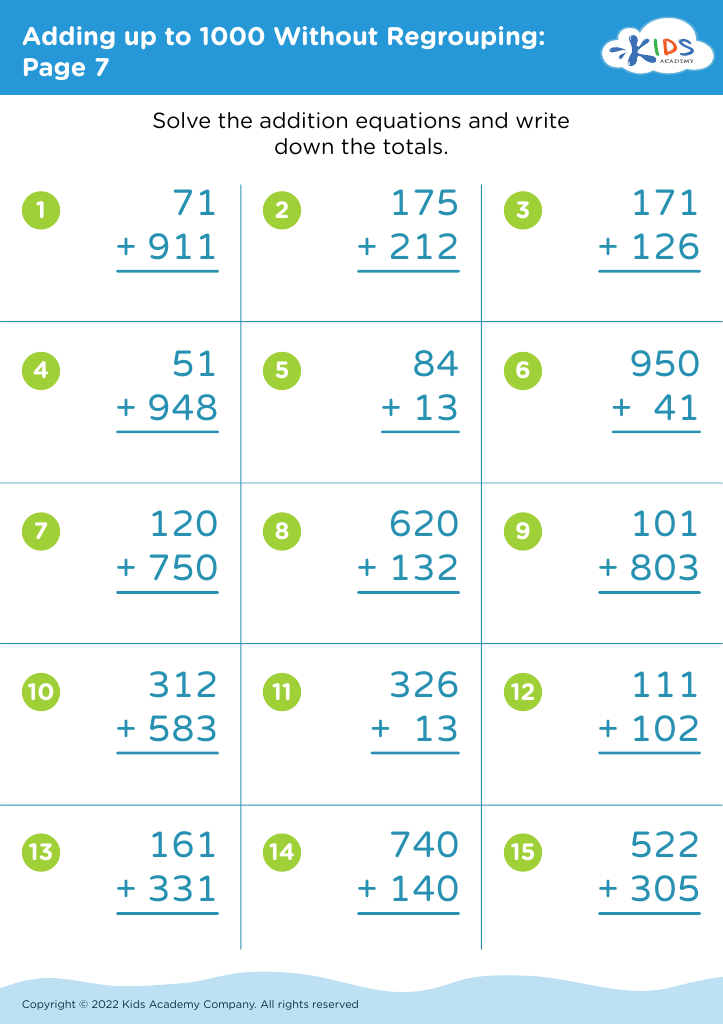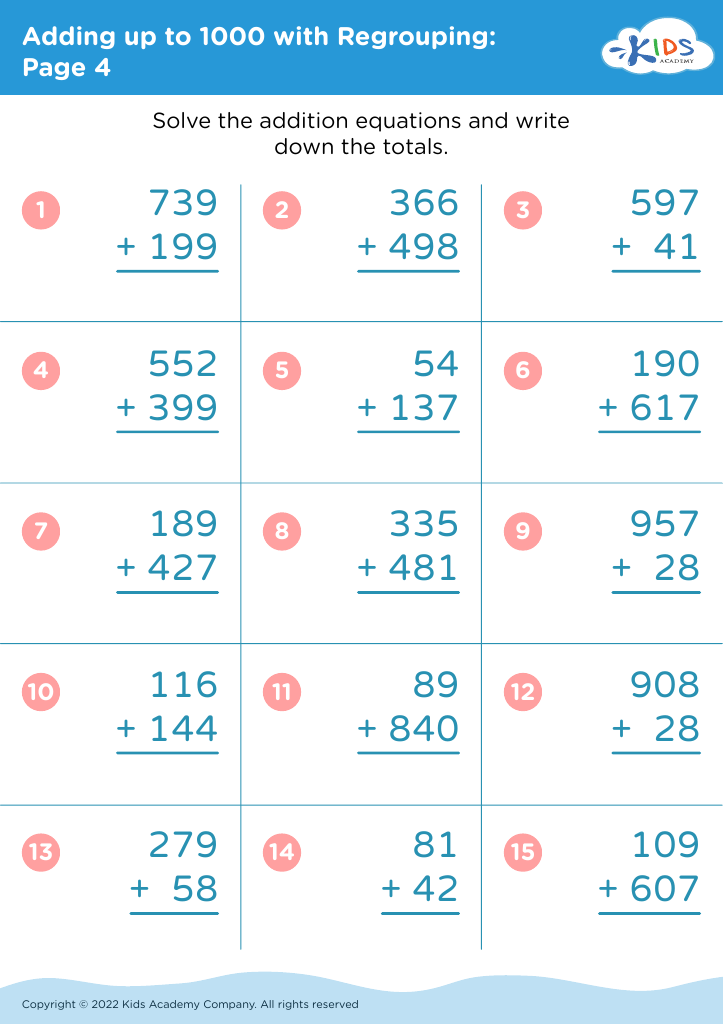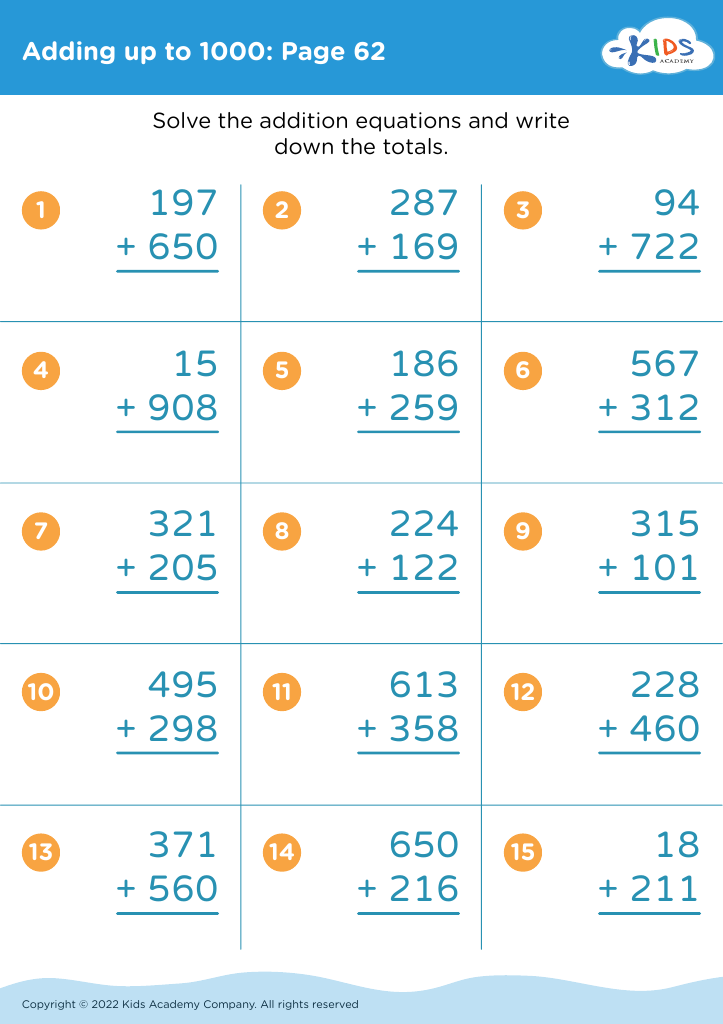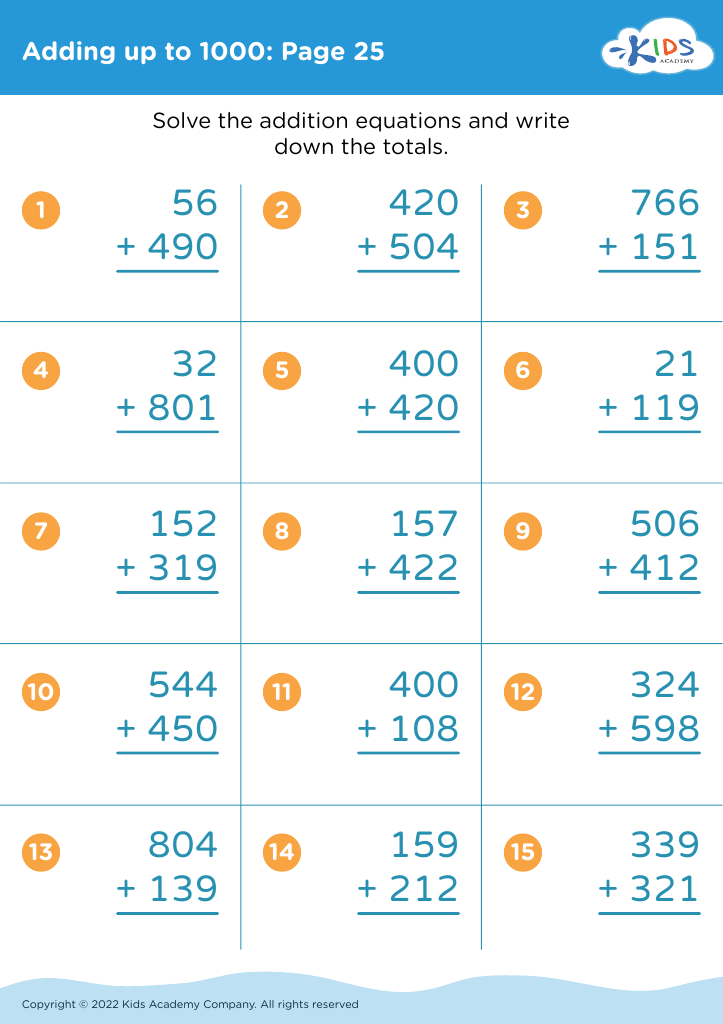Fraction comparison Adding up to 1000 Worksheets for Ages 6-9
13 filtered results
-
From - To
Explore our engaging "Fraction Comparison Adding Up to 1000 Worksheets," tailored for ages 6-9. These worksheets introduce children to essential math concepts, focusing on comparing fractions through interactive exercises. Designed to make learning fun and effective, each worksheet reinforces foundational skills while helping students understand how to analyze and differentiate between various fractions. With colorful illustrations and easy-to-follow instructions, kids will build confidence in their mathematical abilities. Perfect for homeschooling or classroom use, these worksheets support learning through practice, ensuring children grasp important concepts that align with their educational needs. Get started on building a strong math foundation today!
Fraction comparison is a crucial concept for children aged 6-9, as it lays the foundation for more complex mathematical skills. Understanding fractions helps young learners develop critical thinking and problem-solving abilities. By comparing fractions, children learn to assess relationships between different quantities, making it easier to make decisions and understand real-world scenarios, such as cooking or sharing.
When parents and teachers guide children in comparing fractions, they engage them in meaningful discussions about size, quantity, and proportionality. This understanding is not just limited to math but extends to various subjects, enhancing overall cognitive development. The ability to compare fractions is also a stepping stone to mastering addition and subtraction of fractions, vital standards in their educational journey.
Moreover, as children work on fraction comparisons, they build confidence in their mathematical abilities. This confidence carries into future learning experiences, resulting in better performance in mathematics as they progress through school. Providing support and resources for fraction comparison can foster a positive attitude toward math, combat math anxiety, and encourage a lifelong love of learning. Thus, the importance of understanding fraction comparison cannot be understated; it's essential for success in both school and everyday life.

